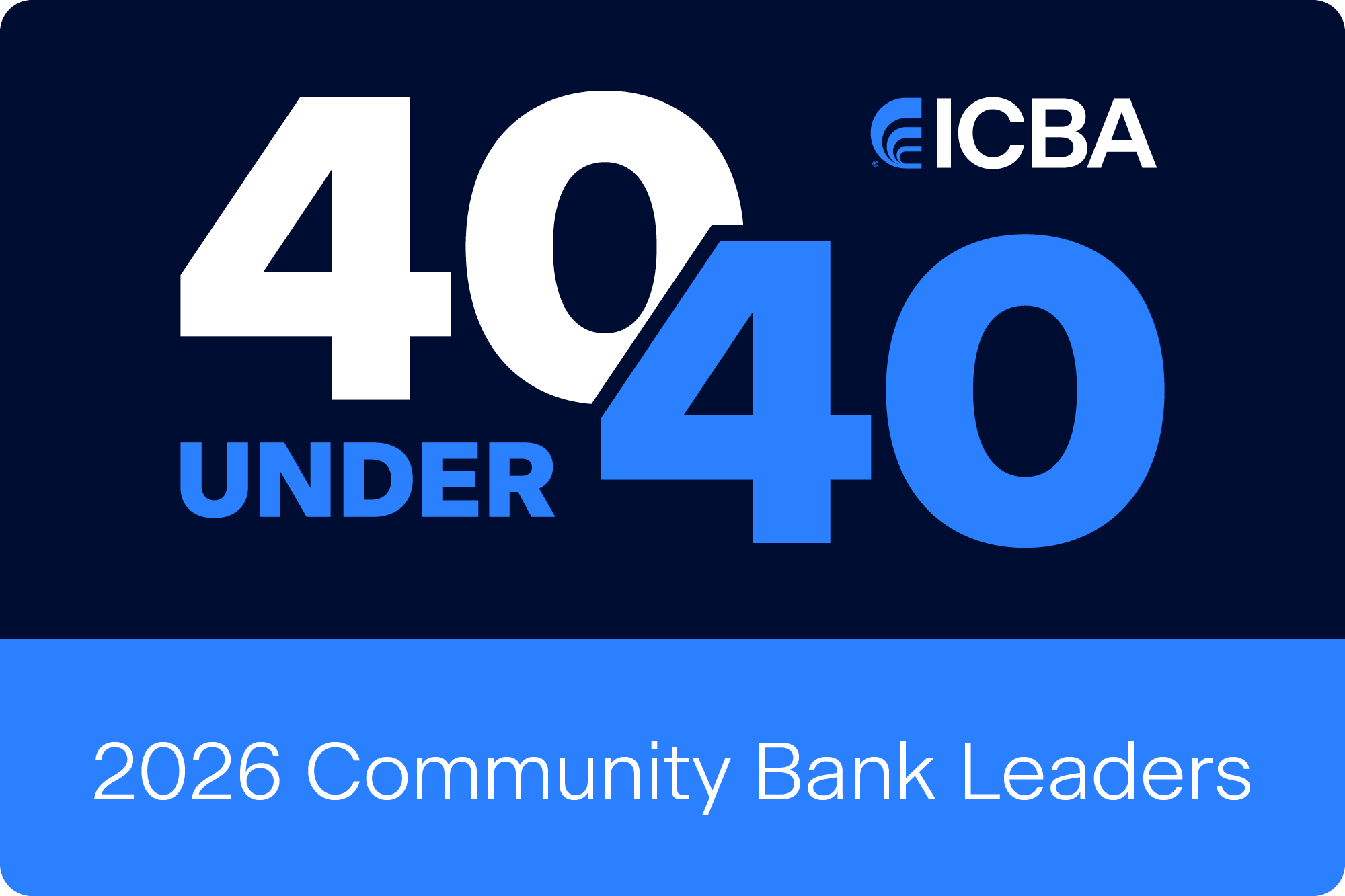What qualities and values are key signs of a great potential leader?
Lindsay LaNore: 5 Values to Look for in Prospective Leaders
October 01, 2024 / By ICBA
What qualities and values are key signs of a great potential leader?
When it comes to identifying future leaders within any organization, it’s easy to resort to clichés. Soon-to-be leaders are the team members who take charge without being asked, they’re the ones who have the answer to every question in meetings, or perhaps they’re the ones with the MBAs. But are those assumptions correct?
It’s entirely possible that those team members could be your future leaders, but the truth is a little more complex and subtle. Here are a few key values that your next generation of leaders should hold.
1. Communication
It’s essential that emerging leaders are good communicators. In team meetings, they’re the ones who share thoughtful insights. They also ask questions, and they are willing to risk asking questions that others don’t, without worrying about sounding naive. Most importantly, they can share their thoughts without dominating the conversation, which means they are less likely to alienate their quieter colleagues.
2. Collaboration
This leads directly to the next factor: collaboration. Playing well with others is a leadership superpower. Emerging leaders jump straight into the trenches with their co-workers, but more importantly, they respect the opinions of others and make time to listen to them. They accept feedback and even actively seek it out. They know how to pitch in, share the workload and delegate tasks, all while elevating others.
3. Compassion
Another key quality is compassion. Future leaders are empathetic, putting themselves in the shoes of others, and they look for ways to help their co-workers progress alongside them. They’re also genuinely interested in the opinions of others and encourage discourse with diverse perspectives. This kind of compassion, when displayed in a way that is truly authentic, builds team rapport and trust in work relationships.
4. Curiosity
Workers on the leadership track look for chances to grow. This means grabbing learning opportunities, volunteering to try new things, taking on new projects and leading new initiatives. They’re curious and adaptable. They’re problem solvers. They’re prepared to get uncomfortable and embrace challenges. Consider how they respond when they are told “no.” Can they sit with ambiguity and learn from failure?
5. Conviction
In addition to all these qualities, future leaders have strong opinions and take a stand for what they believe in. They can (and do) back those opinions up with data and facts, which means they show up at meetings prepared.
Of course, an emerging leader is also a work in progress, and making the most of potential is the goal. To that end, celebrate their curiosity by offering them opportunities for further learning. Those who wish to expand their knowledge can visit icba.org/education for more resources.
Subscribe now
Sign up for the Independent Banker newsletter to receive twice-monthly emails about new issues and must-read content you might have missed.
Sponsored Content
Featured Webinars
Join ICBA Community
Interested in discussing this and other topics? Network with and learn from your peers with the app designed for community bankers.
Subscribe Today
Sign up for Independent Banker eNews to receive twice-monthly emails that alert you when a new issue drops and highlight must-read content you might have missed.
News Watch Today

Join the Conversation with ICBA Community
ICBA Community is an online platform led by community bankers to foster connections, collaborations, and discussions on industry news, best practices, and regulations, while promoting networking, mentorship, and member feedback to guide future initiatives.













